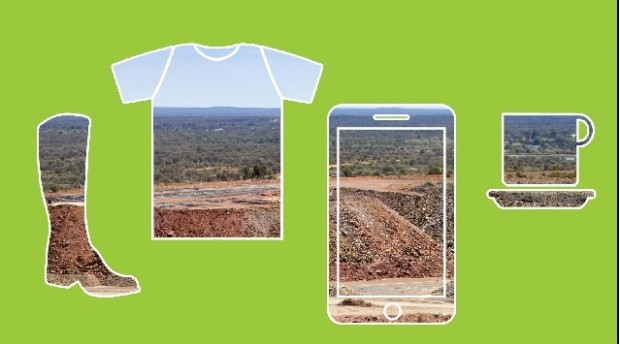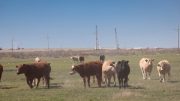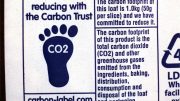A new report today from Friends of the Earth estimates for the first time how much land and water well-known brands such as Apple, Kraft and Gap use in a year, and what’s needed to manufacture some of the products they sell.
Based on modelling by environmental data experts Trucost, the ‘Mind your step’ report examines the land and water ‘footprints’ of a range of diverse products including smartphones, leather boots, coffee, chicken curry ready-meals, t-shirts, and milk chocolate.
Trucost’s calculations also indicate the extent to which often controversial stages in the manufacture of these products – such as mining for metals and minerals, and water pollution from electronics assembly factories – contribute to these water and land footprints.
Mind your step’s findings reveal:
1) Nearly 13 tonnes of water and 18 square metres of land are required to make a smartphone, with two fifths of the water impact due to pollution at the component manufacturing and assembly phases;
2) A pair of leather boots requires 14.5 tonnes of water. However, where leather tanneries dump untreated chemicals into the environment – as is common in tanning districts such as the Hazaribargh region of Dhaka, Bangladesh – this figure rises to 25 tonnes;
3) Over one year Kraft is estimated to have required an area of land the size of Belgium just to make its range of chocolate products.
Mind your step reveals which stages in a product’s manufacture require the most land and water, and gives a striking indication of how much individual companies and whole sectors depend on these precious resources to maintain their operations.
Writing in relation to the report, former European Environment Commissioner Janez Potocnik said:
“The estimates provided in the Mind your step report are extremely useful reminders of how heavily we currently tread on the world. More than that, in a world of fragile economies and environments, they are signposts to how we can tread more lightly, while continuing to grow our economies and improve the wellbeing of our citizens.”
Friends of the Earth’s resource use campaigner Julian Kirby said:
“The snug fit of that phone in your pocket or the crumpled heap of boots in the corner masks the breathtaking amounts of land and water required to make our favourite products.
“In an increasingly populous and environmentally stressed world, it’s more important than ever that companies measure their resource use – for their own sakes as well as the environment’s.
“The good news is that armed with land and water footprint information, companies can redesign their products and business models, to save cash and tread more lightly on the Earth.”
Friends of the Earth is calling for the new Government to commit the Treasury to reviewing the economic and environmental implications of the UK’s dependence on natural resources, and set up an Office of Resource Management to ensure the findings translate into policies for resource efficiency across the economy.
Friends of the Earth
Originally published
in the FriendOfTheEarth
May 12, 2015







Be the first to comment on "New report highlights huge eco-impact of everyday products"